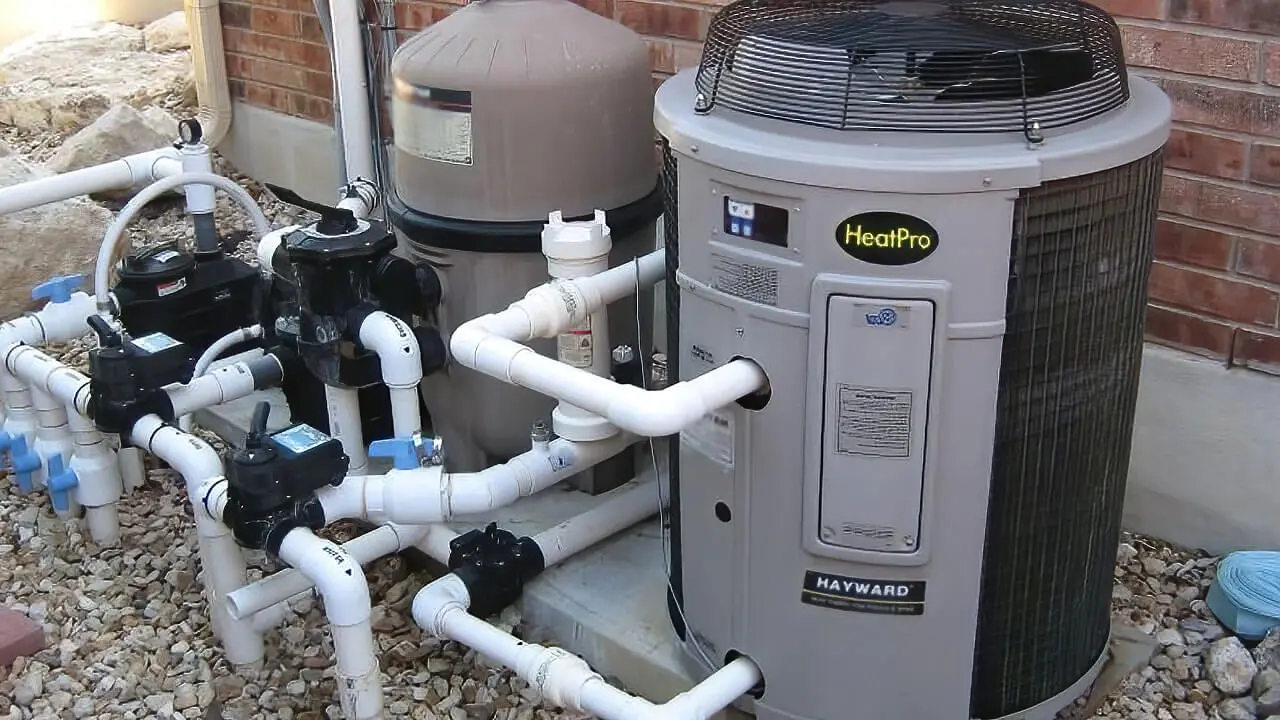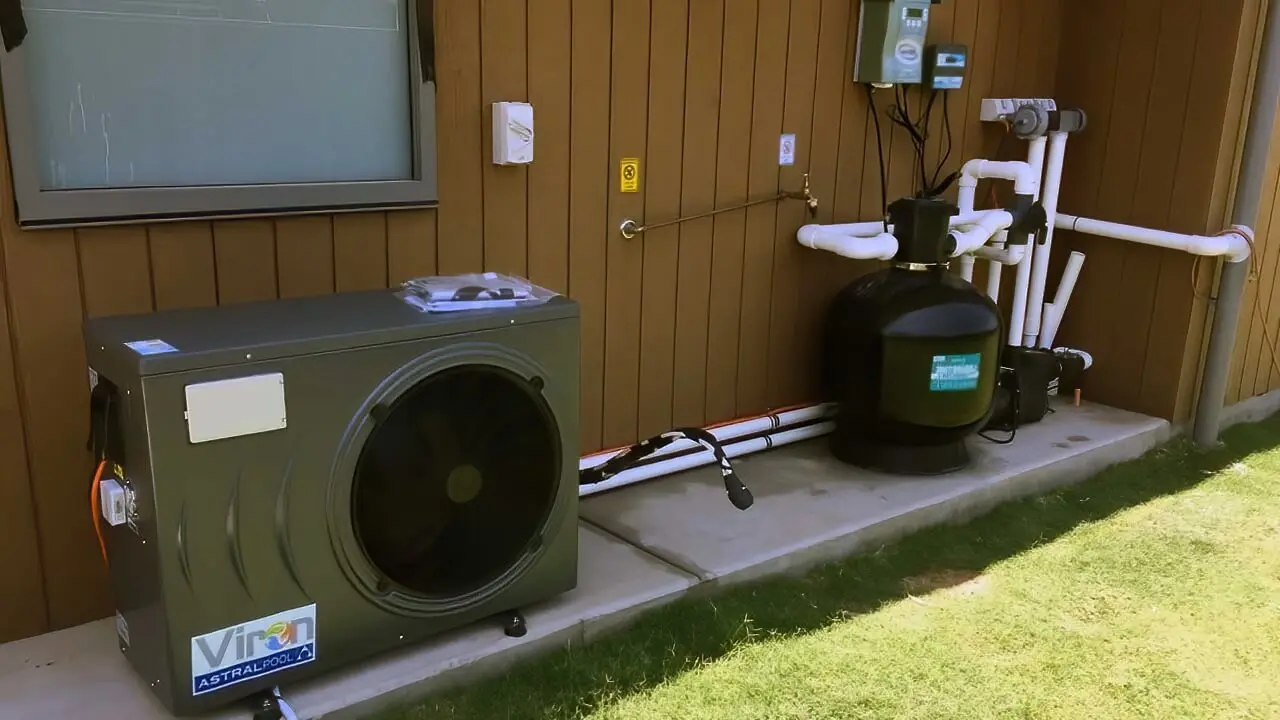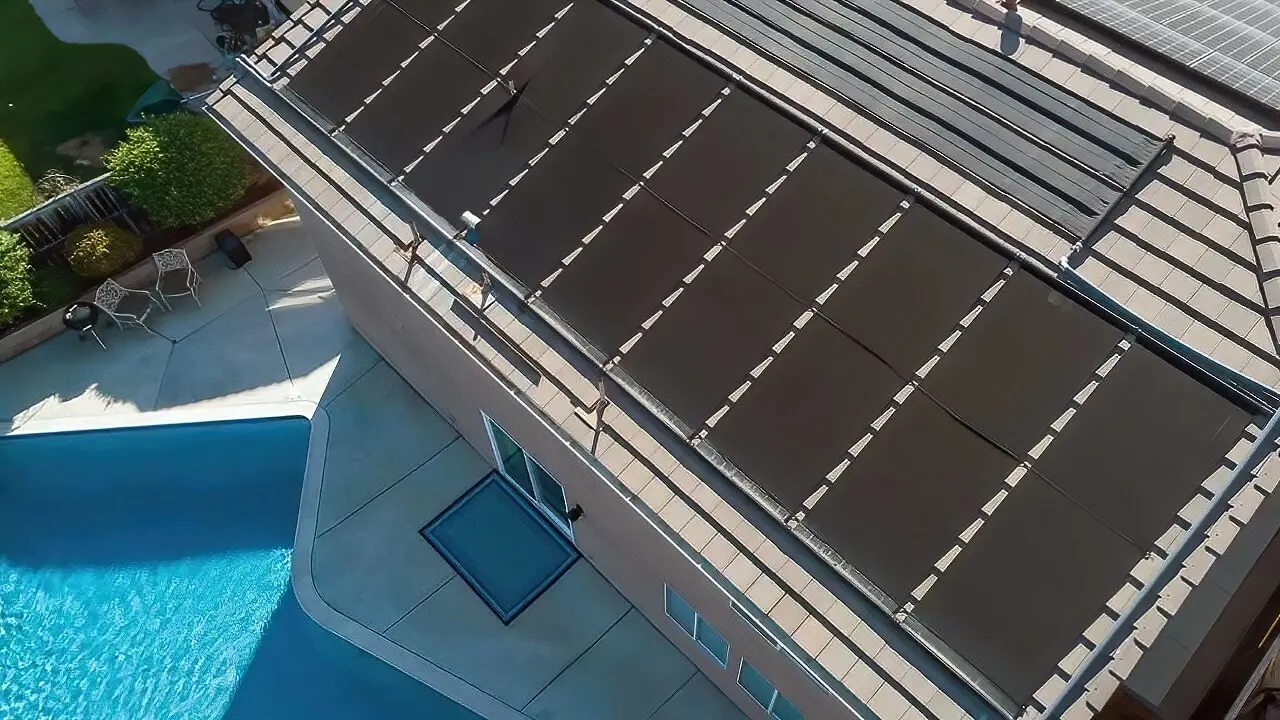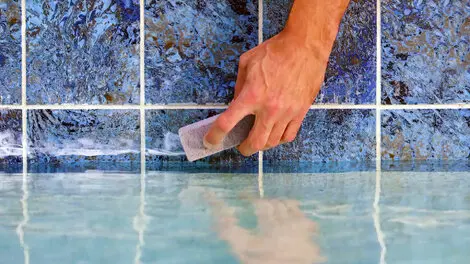Sometimes, a swim is all you need to feel rejuvenated after a long and tiring day at work.
However, it may seem like a distant dream for pool owners living in unpredictable and colder climates unless they like taking ice baths. Unfortunately, people can’t enjoy swimming in their pools all year round in most parts of the world, which is a shame because building a pool requires a substantial investment. But there is a simple solution - a pool heater!
For this reason, we have written this comprehensive and informative guide to provide practical solutions to heat your pool. Generally, there are three main ways to heat your pool: solar, electric and gas. If implemented correctly, they can help you swim every day of the year.
Now, you must wonder which method is the best of the three. Honestly, each method has its fair share of pros and cons, so choosing a technique based on your requirements is best.
Without further ado, let’s discuss this topic further.
Gas Heating System
Gas heating is one of the most efficient ways to heat your pool. Two types of gas are used in this process — liquid propane gas and natural gas.
You would be pleased to know that a gas pool heater doesn’t depend on the temperature outside and can function throughout the year. This means gas pool heaters come in handy when you have to heat your pool within a short time.
The mechanism works by sucking water from the pool through its filters and sending it to the heater. Now, the gas burns in the heater’s combustion chamber, thereby heating the water through the heat exchanger, following which the hot water is sent back to the pool.

How Efficient Are Gas Heaters?
Gas heaters are so popular on the market because they heat water quickly. This makes gas heaters the perfect choice for pool owners in colder climates and those who like heating pools quickly.
However, they are not as efficient as we would like them to operate between 85 and 95% efficiently. In other words, the heater generates thermal units between 85 and 95 for every 100 units of energy produced by gas burning.
Electric Heaters
Also known as electric heat pumps, electric heaters utilise the same technology present in your air conditioner and fridge, but in reverse. Instead of creating heat, heat pumps use electricity to acquire heat from the atmosphere for heating pool water.
Pool heat pumps can work efficiently in colder climates with temperatures as low as 7 degrees Celsius. So, an electric pool heater is ideal for those who want to swim in their pools all year round.

How Efficient Are Electric Heaters?
The efficiency level of electric heaters is measured by COP or coefficient of performance. The higher the COP, the more efficient the electric heat pumps.
That said, there is no hard and fast rule for measuring the COP. Hence, it is impossible to compare the COPs of various models unless you are sure the brands put each product through the same test.
Generally, COP is measured by manufacturers by testing electric heaters at a pool temperature of 80 degrees Celsius and a similar outdoor temperature. Now, the COPs of electric heaters generally range between 3.0 and 7.0, which converts into an efficiency level of 300% and 700%.
It simply means that you get 3-7 units of heat for every unit of electricity, which is fascinating. So, it is evident that electric heaters are much more efficient than gas heaters.
Solar Heating
As the name suggests, a solar pool heating system uses solar energy from the sun to heat the pool’s water. It works by passing water through a sequence of rubber tubes placed on your roof, heating the water and returning it to the pool.
First, the mechanism checks the temperature on the roof, compares it to the pool water temperature, and then turns the heater on or off accordingly. The process continues until the pool’s water reaches the set temperature.
We recommend that a solar pool heater is appropriate for those living in areas that experience year-round sunshine and warmth. It can extend the swimming season for up to six months in Australia. You can also invest in solar pool covers to heat a pool.

How Efficient Are Solar Heating Systems?
The product’s thermal performance rating can check the efficiency of solar pool heaters, measured in BTU per square (British Thermal Unit per square). A higher BTU value translates to higher heating efficiency.
An efficient system will drastically minimise the annual operating cost of a solar heating system.
Factors To Consider Before Buying A Pool Heating System
These are a few crucial factors that you should keep in mind when buying the right pool heating system:
1. Efficiency
Efficiency should be your priority when purchasing a pool heating system.
For instance, even though gas heating is expensive, it can be effective for smaller pools as it heats the pool in a short time. Hence, you are not using it longer than you need, which wouldn’t have been the case with a solar heating system or electric heater.
So, a gas heater would be the right choice in this scenario.
As far as electric heaters are concerned, they are a good option if you have a midsize or large pool. With it, you can heat the pool as per your requirements; even though it might take a little longer, it is cheaper than gas.
Besides, solar heating systems increase the pool temperature by only 7-10 degrees, making them the most efficient heating method in warmer climates.
2. Cost Of Running
Another crucial factor that pool owners often overlook is the cost of running the heating system. Solar heating is mainly considered the cheapest method as it depends on the sun’s energy.
Next comes electric heaters, where you have to consider the cost of electricity. Following electric heaters are gas heaters, which are the most expensive option. Also, the cost of running a gas heater depends on the gas prices in your locality.
3. Climate
If you live in a cold climate with barely enough sun exposure, choosing a solar heating system may not be appropriate. As mentioned above, a solar heating system will increase the temperature only by a few degrees, which may not be sufficient for colder climates.
So, in this case, you can consider opting for either a gas heater or an electric heater.
Heating Your Swimming Pool
With that, we have come to the end of our informative guide. We hope it has helped you gain valuable insights into the most common pool heating systems.
Undoubtedly, an efficient pool heating system is the most effective way to extend your swimming season. Solar heating systems are the most affordable option but only suitable for warmer climates.
On the other hand, electric heaters are suited for medium to large-sized pools, whereas gas heaters deliver fast output, making them an ideal option for small pools. Before wrapping up, we advise you to thoroughly review the important factors to help you make an informed purchase. You can also check out the different options for pool covers, as they are a great way to maintain heat retention affordably,
If you need assistance choosing a heating system for your backyard swimming pool, contact our team at The Pool Co any time!
So, that’s all for now. Until next time, take care!
Pool Heating FAQs
What is the most energy-efficient pool heating system?
Heat pumps, also known as electric heat pumps or pool heat pumps, are the most energy-efficient option for heating an inground pool. An electric heat pump can provide 3-7 units of heat for every 1 unit of electricity, resulting in major energy savings compared to other pool heaters.
How can I keep my backyard pool warm without running the pool pump all the time?
Using a solar pool cover or solar cover when the pool is not in use will retain heat and keep the entire pool warmer without constantly running your pool pump. Solar covers are a cost-effective way to boost heat retention.
How long does it take for a heat pump to warm up my pool?
An electric heat pump can raise your pool’s temperature by 2-4 degrees Fahrenheit daily. So, warming an entire inground pool by 10 degrees could take 3-5 days with consistent use of the pool heat pump.
What heating system is fastest for quickly heating my backyard pool?
Gas pool heaters heat water the quickest and can rapidly warm a pool in just a few hours. However, gas heaters are less energy efficient than electric heat pumps or solar pool covers for regular pool heating.



